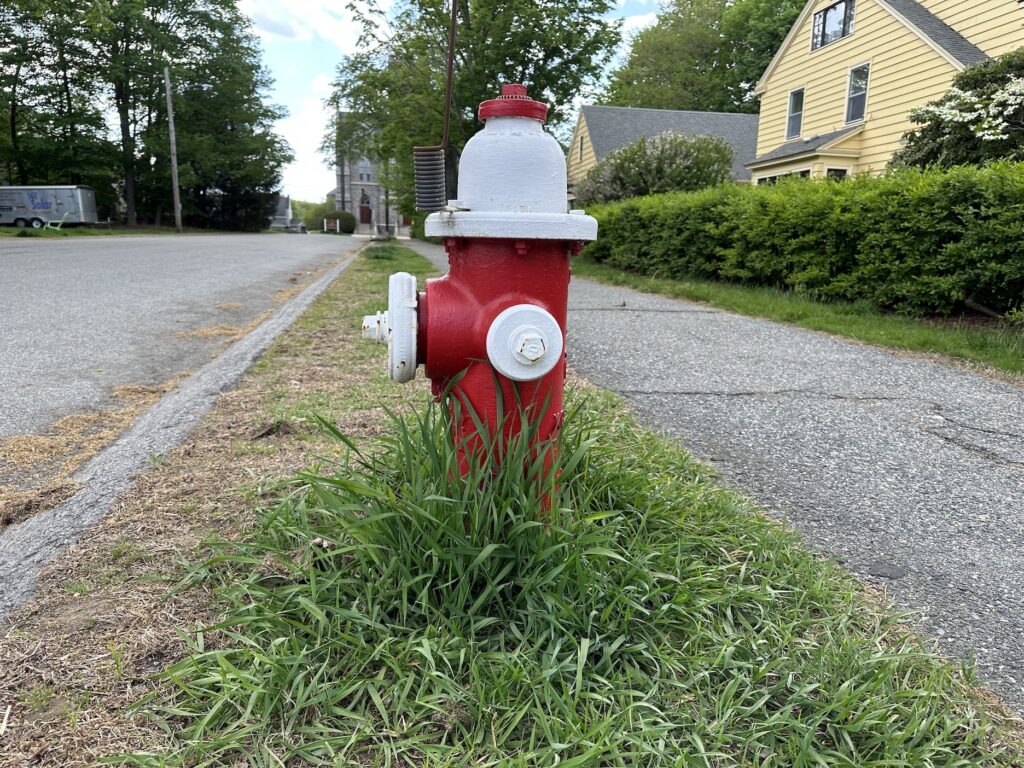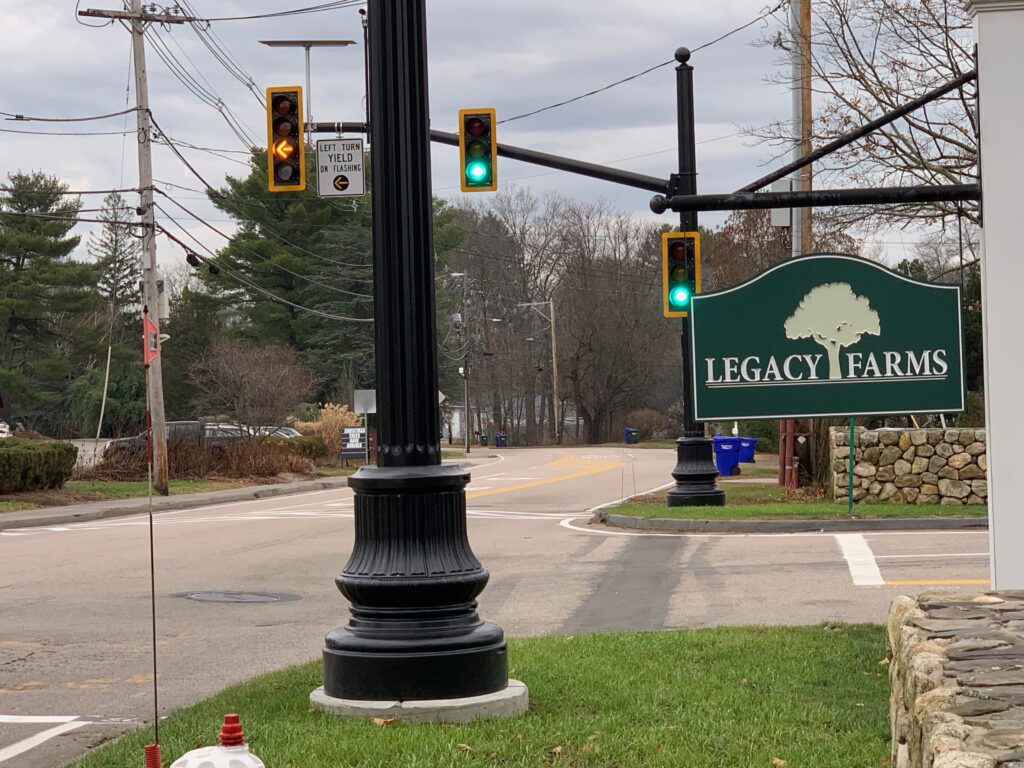The Health Department’s efforts to limit illegal food distribution in the Legacy Farms neighborhood continues, and while some offenders have closed up shop, others have continued to operate in the shadows, Health Director Shaun McAuliffe said.
However, two residents who received cease and desist letters from the town in late May insist they were wrongly accused. In the case of a homeowner who lives on Autumn Ridge Drive, she is a USDA licensed importer of mangoes, and she supplies them to several registered businesses.
She was called into question for allegedly distributing crates of mangoes to residents from her home, and the Health Department was given a copy of social media post directing individuals to pick up fruit there. However, the resident stated that the post with her home address was a mistake that she later fixed to send residents to a store in Framingham. She did acknowledge handing out some mangoes to residents, but she stated that she did that only as a “courtesy” to people to save them a trip out of town.
She also strongly denied any involvement with a grocer in the state (groceryol.com) that allegedly has been using residences — including some in Hopkinton — to help with distribution.
“I don’t have any connections or associations with anyone from the online grocery store [referenced],” stated the resident, who asked not to be identified. “I, in fact, had reported about this website, as some of the people who bought food from them were very upset with the quality and service.”
McAuliffe acknowledged that there is no evidence to support that accusation. He offered an apology for any distress it caused the resident, while he attempts to identify the true culprits.
“The Autumn Ridge resident is not affiliated with groceryol.com and is not reported to have had any business dealings with them,” McAuliffe said. “Further investigation has led the department to believe that there are residents utilizing groceryol.com to distribute product in town and throughout the region. This distribution, as we understand it, is illegal.
“We have learned that garage distribution of food products and home kitchens selling time temperature for safety foods continues in Hopkinton and the region. The MDPH [Massachusetts Department of Public Health] and regional health departments will be working to stop these illegal operations. That being said, we are also working to provide legal business opportunities to open and operate take out food operations.”
McAuliffe said he’s been fighting an uphill battle, but he added that has has received some support from residents in Legacy Farms.
“There’s a group that’s applauding us, because they don’t believe what [their neighbors] are doing is right,” McAuliffe said, noting that has received multiple tips and photos of suspicious behavior from residents.
McAuliffe said he also has spoken with a resident who hopes to open a venue where a few people who are operating illegal home kitchens could have a licensed facility in town to cook and sell their foods.
In the meantime, McAuliffe continues to pursue those who flaunt the health regulations. He said he hopes to avoid taking it to law enforcement, but if residents continue this behavior, in some cases he will have no choice.
“I don’t enjoy this,” he said. “But at the end of the day, they’re breaking the law. If there’s an outbreak because someone gets sick and I knew about it, the town has liability.
“I’m trying to shut down all the stuff that I identify. Most of the people I’ve cited have stopped or moved. But if people open up and start doing it after getting a cease and desist, then I’ll bring in the police. And I’ve been bringing it to the HOA [homeowners association].”
In addition to the health issue, McAuliffe said, there is concern that the neighborhood water treatment plant will not be able to handle the increased usage required by these operations. He said a couple of residences have extremely high water usage that has drawn suspicion. Already, an individual who was operating a hair salon out of a garage was called out by the HOA and ceased operations.
“The treatment plant was designed for residential use and very limited retail,” McAuliffe said. “It wasn’t designed to have restaurants and other businesses.”
McAuliffe added that the HOA has sent multiple letters to all residents and is fining those who have been ticketed by the Health Department.



















Health Director McAuliffe,
I would like to provide an alternative point of view to some of the points that you have made here about food operations in Legacy Farms.
In most cases, people do not patronize these businesses due to the fact that the services they provide are in any way exceptional, rather, they patronize the businesses due to the convenience…ironically, the things that make these businesses illegal (mainly that they are operating out of residential zones) is the reason why they are so popular in the first place. People want to be able to get groceries, salon services, tiffin services etc without having to devote an hour or more out of their day to driving into a city like Framingham where there exists South Asian Grocers or other services that the members of the primarily Indian-American Legacy Farms community are accustomed to. While large haul grocery trips are something that have become normalized in suburban America, globally the majority of people live with a grocer within their mixed use residential and commercial community. The first time my Aunt came to the States from India, she was shocked by the idea of needing to make a “grocery list”, because her whole life she could walk in under 5 minutes to a local grocer that carried produce, fruits, dairy, snacks, and personal care products. In a town such as Hopkinton, which is sprawling, car dependent, having dismal access to public transportation and little to no options for groceries, services, and entertainment aside from Price Chopper (which is at the edge of town and (in my opinion) is overpriced and offers bad quality food) and a small number of niche businesses in the downtown, local commercial services run by their neighbors (many of whom have similar national and linguistic origins) in the walkable residential community of Legacy Farms can be a breath of fresh air and a reminder of home for many immigrants.
Tiffin services in particular, which have been shut down by the Health Department, can be a life saver for families who need a quick, healthy, and affordable meal delivered quickly to their door, especially in times of strife or illness.
It is also important to highlight the role of women in these businesses. The Legacy Farms neighborhood boasts a primarily Indian-American population, a large proportion of whom are families who fit into the following structure: there are children are US citizens, there is a father is on a H1B (working visa) and there is a mother who is a homemaker on a dependant spousal visa, which does not allow for work privileges in the US. Many of these women can and do turn to the cottage industry “make a buck” because that is the only option for them (keep in mind I am not even bringing up issues such as international degrees not being taken seriously in the US, ability or confidence in speaking English, as well as the general issues that housewives have when attempting to reintegrate into the workforce). You state that “I’d rather not see anybody suffer because they’re selling products illegally out of their home”, but many women engage in the cottage industry as a way to alleviate some of their suffering and help them find a sense of independence and worth. While liability is definitely a concern, instead attempting to pressure people engaging in the cottage industry into opening storefronts (a timely and costly venture that may not suit everyone’s lifestyle) why doesn’t the health department work with community members to learn the rules of licensing, registration, and engaging in cottage industry in the state of Massachusetts, which is legal, as well as working with community members, the HOA, and local government to change laws and regulations to fit better with the desires and needs of the local community. (https://cottagefoodlaws.com/massachusetts-cottage-food-laws/#:~:text=COTTAGE%20FOOD%20PRODUCTS-,Massachusetts%20Cottage%20Food%20Laws%20%E2%80%93%20Sales%20Rules,not%20allow%20mail%20order%20products.)
While there are issues with liability concerns with the cottage industry if someone does happen to get sick (and those are issues that should be addressed), I also think that it is important to note the hypocrisy that American society has with regards to the stigma that home-based commercial operations (which are very popular among non-white and/or immigrant housewives) vs the normalization of the activities that non-immigrant white housewives do in order to “make a buck” which have arguably a significantly greater potential for damage overall, such as engaging in multi-level marketing (which is a pyramid scheme) and family vlogging (which equates to child labor and potentially abuse). I am interested in what the town of Hopkinton and the state of Massachusetts is doing to address these issues in their communities.
I understand that you are doing your job and have respect for you for that. You are doing it thoroughly.